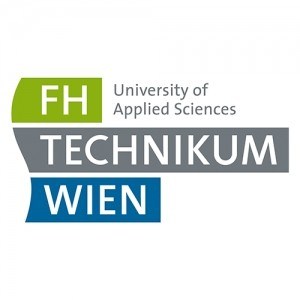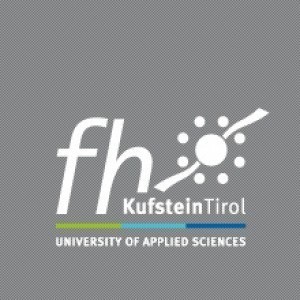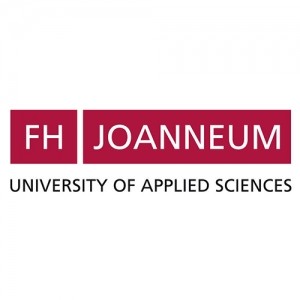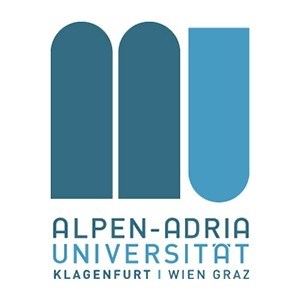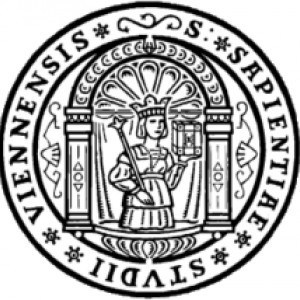Photos of university / #technikum_wien
The Bachelor’s degree in Biomedical Engineering Sciences at the University of Applied Sciences Technikum Wien offers a comprehensive and interdisciplinary education tailored for students aspiring to innovate and advance healthcare technologies. This programme seamlessly integrates principles from engineering, natural sciences, and medicine to prepare graduates for diverse roles within the rapidly evolving medical technology sector. Over the course of the programme, students acquire a strong foundation in core engineering disciplines such as electrical, mechanical, and computer engineering, complemented by specialized knowledge in biomedical topics including human physiology, medical imaging, biomaterials, and medical device design. The curriculum emphasizes practical skills through numerous laboratory exercises, project work, and internships, fostering hands-on experience crucial for the development of cutting-edge medical solutions.
The programme’s innovative structure encourages students to engage in problem-solving, critical thinking, and teamwork, essential qualities for addressing complex healthcare challenges. Academic instruction is complemented by close collaboration with industry partners and healthcare providers, providing students with insights into the current trends and demands of the biomedical engineering field. Graduates are equipped to work in various sectors, including medical device manufacturing, healthcare IT, rehabilitation engineering, diagnostics, and research institutions. The programme also lays a solid groundwork for those interested in pursuing postgraduate studies or engaging in research activities. With a focus on high-quality teaching, state-of-the-art laboratories, and international orientation, the Biomedical Engineering Sciences degree at Technikum Wien prepares students to become innovative professionals capable of improving people's health and quality of life through technological solutions.
The Bachelor's degree program in Biomedical Engineering Sciences at the University of Applied Sciences Technikum Wien offers a comprehensive curriculum designed to prepare students for the rapidly evolving field of healthcare technology. This interdisciplinary program combines technical engineering principles with biological and medical sciences to equip students with the skills necessary to develop, implement, and maintain innovative medical devices and systems. Throughout the program, students gain a solid foundation in engineering disciplines, including mechanical, electrical, and software engineering, tailored to the unique challenges of biomedical applications. They also delve into human anatomy, physiology, and pathology to understand the biological contexts of their technological solutions.
The curriculum emphasizes practical training and laboratory work, ensuring students acquire hands-on experience in designing and testing medical instruments, imaging systems, and diagnostic devices. Coursework includes subjects such as medical electronics, biocompatible materials, signal processing, and biomedical instrumentation. Additionally, students learn about regulatory standards and quality management systems relevant to the healthcare industry, preparing them for compliance and safety considerations in their future careers.
In line with the university’s focus on applied sciences, the program promotes industry collaboration through internships, project work, and partnerships with leading healthcare technology companies. This provides students with real-world experience and professional networks. The program also incorporates topics like data analysis, telemedicine, and digital health solutions, reflecting the digital transformation in medicine. Graduates will be equipped not only with technical expertise but also with problem-solving, project management, and communication skills essential for interdisciplinary collaboration.
Upon completion of the program, graduates are qualified to work in various sectors, including medical device manufacturing, healthcare IT, research institutions, and hospitals. They can pursue roles such as biomedical engineers, clinical technologists, or product developers. The degree also provides a solid foundation for further studies and specializations in biomedical research or advanced engineering fields. Overall, this program aims to foster innovation in healthcare technology and contribute to improving patient care through engineering excellence.
Program requirements for the Bachelor’s degree in Biomedical Engineering Sciences at the University of Applied Sciences Technikum Wien include a combination of academic prerequisites, language proficiency, and additional competencies. Applicants must have completed secondary education that qualifies them for university entrance, typically demonstrated through a high school diploma or equivalent recognized in Austria. Proficiency in English is essential, as the program is offered in English; therefore, applicants are required to submit valid proof of English language skills, such as IELTS or TOEFL scores, demonstrating a minimum level of proficiency. In some cases, applicants with educational backgrounds in science or engineering are preferred, emphasizing competencies in mathematics, physics, biology, and chemistry, to ensure a solid foundation for coursework integration. Prior experience or coursework in information technology, programming, or medical technologies can be advantageous but is not mandatory. The program seeks students with strong analytical abilities, problem-solving skills, and an interest in technological innovations in healthcare. While there are no mandatory entrance examinations, applicants may be assessed based on academic transcripts, motivation letters, and interviews to determine suitability and motivation for the interdisciplinary field. Additionally, applicants should demonstrate their ability to work collaboratively in multicultural, technologically advanced environments, as teamwork and communication skills are integral components of the curriculum. The admission process aims to select candidates who show potential for rigorous scientific work, ethical sensitivity, and a passion for developing solutions in biomedical engineering. Once admitted, students are expected to meet ongoing academic performance standards, including coursework, practical training, and final projects, which require disciplined engagement and active participation throughout the program.
The Biomedical Engineering Sciences program at the University of Applied Sciences Technikum Wien offers a range of financing options to support students throughout their studies. The university provides detailed information about tuition fees, which are designed to be transparent and accessible for domestic and international students. Tuition fees for degree programs are typically structured per semester, with potential variations based on student status and specific program requirements. For full-time international students, a semester fee is applicable, which covers administrative costs and access to university facilities. Additionally, students may benefit from various scholarship programs, grants, or financial aid opportunities aimed at reducing the financial burden of higher education. These scholarships are often merit-based or need-based and require an application process that includes submission of academic records and motivation letters. The university also encourages students to explore external funding sources such as government grants, private foundations, and industry-sponsored scholarships that may be available to biomedical engineering students. Payment plans are sometimes offered to ease the financial commitments, allowing students to pay tuition fees in installments over the semester. Moreover, students enrolled in the Biomedical Engineering Sciences program have access to part-time employment opportunities both on and off campus, which can help defray living expenses and other costs associated with studies. The university’s career service supports students in finding internships and part-time jobs that complement their academic pursuits. Financial support services at Technikum Wien also include counseling to help students manage their finances efficiently and plan for their educational expenses. International students are advised to consider additional costs such as visa fees, health insurance, and accommodation, and to incorporate these into their overall financial planning. As the university maintains strong ties with industry partners, students may also benefit from sponsorships or co-op programs offering financial incentives or stipends. Overall, the funding landscape for Biomedical Engineering Sciences students at Technikum Wien is comprehensive, aimed at making higher education accessible while providing various channels of financial assistance to ensure that students can focus on their academic and professional development without undue financial stress.
Biomedical Engineering Sciences at the University of Applied Sciences Technikum Wien is a comprehensive bachelor's degree program designed to prepare students for the rapidly evolving field of medical technology and healthcare innovation. The program combines principles of engineering, biology, and medicine to equip students with the skills necessary to develop, operate, and manage medical devices and systems. Students will engage in a curriculum that emphasizes practical application, integrating theoretical knowledge with hands-on training through laboratory work, project-based learning, and internships. The program covers core topics such as biomechanics, medical electronics, signal processing, sensor technology, and medical imaging, providing a robust foundation for future careers in medical device development, hospital technology management, or research. The interdisciplinary nature of the program encourages collaboration across different health sciences and engineering disciplines, fostering innovative solutions to healthcare challenges. Graduates will be prepared to work in diverse settings including hospitals, research institutions, and biomedical companies. The program also emphasizes the importance of quality management, regulatory affairs, and ethical considerations in medical technology. Students benefit from state-of-the-art laboratories and strong connections with industry partners, facilitating internships and job placement after graduation. The program aims to nurture competent professionals who can contribute to advancements in healthcare technology, improve patient outcomes, and support the digital transformation of medical services. By focusing on both technical expertise and understanding of medical contexts, students will be well-positioned for a successful career in a dynamically growing sector. The international orientation of the university also encourages language skills and intercultural competence, preparing students for global opportunities in biomedical engineering.
